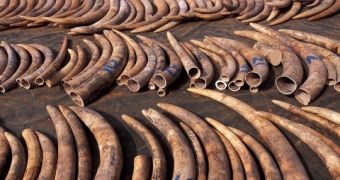Just a few days ago, we reported on how illegal trade with ivory and rhinoceros horns is taking its toll on our planet's remaining elephant and rhino population.
The good news is that an international meeting housed by the city of Geneva this week is aimed at addressing precisely this issue.
Thus, about 350 environmentalists and high officials are expected to gather around and discuss what can be done so as to put a leash on poaching activities.
It is presumed that a new conservation agenda for the next three years will also be agreed upon.
In order to better regulate illegal wildlife trade, the participants to this conference are first to identify and pin down the precise reasons for which people are still hunting these two animal species, in spite of the fact that they are endangered and therefore under the law's protection.
As well as this, the committee will put together data collected by four different sources which are in the business of keeping a close eye on poaching activities, so as to establish whether or not there is a pattern when it comes to illegal ivory and rhino horn trade.
Apparently, this will make it easier to find the culprits and shut down any existing markets where people go to sell and buy such animal parts. All Africa reports that Øysten Størkersen, one of the people in charge of ensuring the success of this gathering, told the press that “With elephant and rhino poaching and smuggling levels being the worst in a decade, it is clear that strong additional measures are required.”
He further explained, “The present meeting will help set the priorities and to ensure the long-term survival of key species we would like to leave to future generations.”
Although special emphasis will be placed on safeguarding elephants and rhinos, other species such as freshwater turtles and tortoises, various amphibians and even certain types of snakes will also be taken into consideration when developing on future conservation projects.

 14 DAY TRIAL //
14 DAY TRIAL //